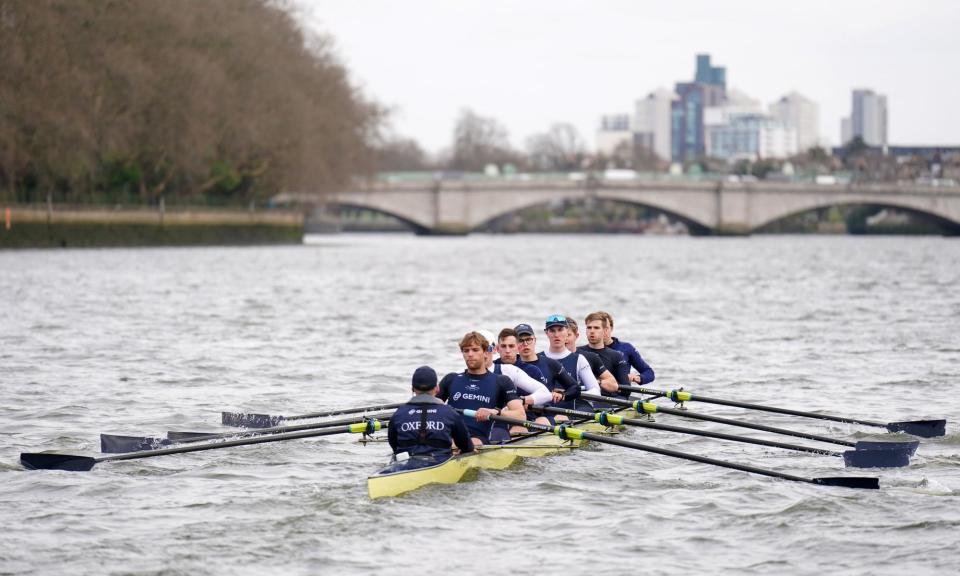‘A national disgrace’: Oxford rail at River Thames pollution ahead of Boat Race

The University of Oxford’s rowing coach has called the pollution in the River Thames a “national disgrace” after high levels of E coli were found on the Boat Race course.
Sean Bowden, who has coached Oxford since 1997, also admitted that the health risks could also stop the tradition of the winning cox being thrown or jumping into the river.
Related: Regulators urged to act over water companies’ record sewage discharge
As the Guardian first reported on Tuesday, organisers have issued new safety guidance this year, including a warning to rowers not to enter the water and to cover any open wounds.
The unprecedented action came after levels of E coli were found to be nearly 10 times higher than levels found in bathing waters graded as “poor” by Environment Agency standards – the worst possible rating.
“It’s a national disgrace isn’t it?” said Bowden. “It’s very concerning. And it would be terrific if the Boat Race drew attention to it. We are very keen to play a part and we recognise we have a role and a responsibility to it.
“Once in a while someone will pick up a stomach bug, but they tend to bounce back within 24 or 48 hours. So this is something that is really important. We clearly don’t want people to get ill. We talk about every time we come to the Tideway about good hygiene and mitigation strategies.”
However when Bowden was asked whether the Oxford cox might jump or be thrown into the river on Saturday, he was noncommittal. “I don’t know,” he said. “That is a discussion we will have. The coxes have the right to choose whether they want to be thrown in or not. We will deal with that one in good time.
“People do swim and do a lot of water sports in the river. But throwing the cox in the water for about 10 seconds carries some very small risk, I guess.”
However, the former GB rower Harry Glenister, who will compete for Oxford this year, indicated the team were erring against tradition. “If there’s a health and safety problem I don’t think we’ll be throwing him in because we don’t want to risk that,” he said.
“It’s just too much of a risk. We support whatever the Boat Race is saying about the conditions in the water. We just hope we’ll win and then we’ll decide.”
The expectation is that London’s new £5bn super sewer will alleviate much of the problems when it opens next year. Bowden said that a debate needed to be had nationally and he was “really glad the papers were pursuing the water companies”.
“Surfers Against Sewage and all these really great people were trying to bring this to our attention years ago,” he said. “The amount of time it has taken to get traction is a worry.”
In a statement, Thames Water blamed the problem on recent high levels of rainfall and said it was working hard to reduce discharges of sewage into the river. “We are working hard to make these discharges unnecessary and have published plans to upgrade over 250 of our sites.”

 Yahoo Sport
Yahoo Sport 





































